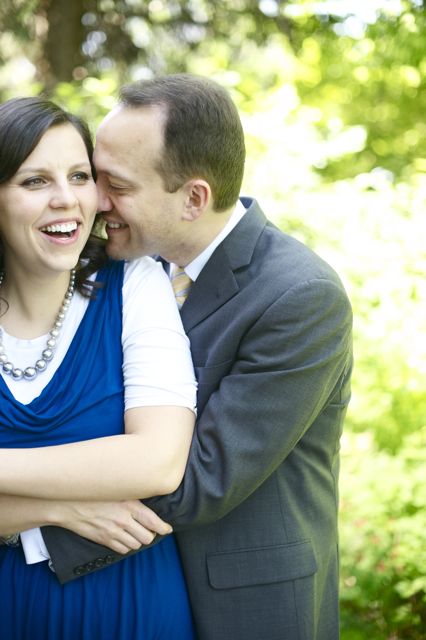This past Sunday in Relief Society, my ward was discussing some of Joseph Smith's letters to his wife Emma. The letters were written on his many trips away--to preach, to set up business, to establish the church, to rein in the church, to deal with the lawsuits and allegations and legal charges laid against him. Etc. This was one of the points of the lesson: Joseph Smith was away a LOT, but he loved his family.
One of the women in my Relief Society said something about how it's evident that Joseph Smith put his family first, that they were his first priority, and that that's clear to see from his letters. And though I think that probably this is fundamentally true--that probably he did love his family more than anything else on this earth and probably they were his first priority--I don't think that's clear from his letters (even ignoring the fact that we were reading excerpts), if for this reason alone: Joseph Smith was away from his family A LOT. And, some might say, often voluntarily.
I sat on my padded plastic chair and thought about this. My father was away a lot when I was growing up. I'd wager (metaphorically) that he's still away a lot. And this is due primarily to his church callings. He was called as bishop of my ward in early 1989. He was called as stake president of our stake in 1993. And when in 1998 we moved--to be closer to his work, I thought--we moved right into the part of the stake they were chopping off to become its own district, and Dad was called as district president. He was unsurprised. That was ten years ago almost exactly. It's been twenty years since Dad sat regularly on our bench with us at church. It's been twenty years since he's been home regularly on Sunday mornings and since he hasn't had to go out multiple times a week for church-related meetings. Most of my memories of my dad from during my high school years are of him standing in the kitchen at 11 pm, tie off and white shirt sleeves rolled up, eating something microwave-reheated off a plate, while I sit at the kitchen table, reeling off about my day and my many life decisions. "Right, right," I can hear him saying. He is holding his fork, looking at his plate, and swaying a little from side to side. Periodically, he picks up a white ceramic mug and drinks some water.
And so, this past Sunday, I asked myself this: How is it that I can tell that, even though my dad spent a lot of time away from us doing church stuff, we were his first priority? How is that I can reconcile my desire to call us his "first priority" when, in reality, he so often chose to be away from us, thereby de facto prioritizing something else? And, more generally (even trenchantly, perhaps), how do we, as a religion that preaches so loudly--so consistently and, these days, so publicly--the central importance of the family, reconcile our claims that we value family above all else, even as we ask these men, these women, these families to spend so much time necessarily apart? (Despite the church's many attempts to get us to streamline our church work and increase time spent with family, a fair amount of church service necessarily means time away. You can't really make a daddy-daughter date of bishop's interviews.)
And, in good interior monologuing fashion, I came up with an answer. While my Relief Society teacher was teaching away, I realized this: I know that we were my dad's first priority because I knew--I KNEW--that he would rather have been with us. I always knew that he would rather have been at home with us. I knew that not even in his heart of hearts was he kind of glad for the responsibility or the power or the self-importance or the whatever that could come from being such a figure in so many people's lives if he were a less humble and a less good man. He loved us the most. He enjoyed us the most. And if he hadn't been called to do that work, then he certainly would have gotten into his car and come home straight to us. And to a sitting dinner.
And I can only think that he was able to communicate that to us because it was really true. Families are smart. They can read between the lines and sense deep truths and pick up the small messages sent by the small acts made by the small parts of us. They can accrue.
So that's my answer. I think that the only way to make our families know that they are the most important thing to us (after our commitments to keep our covenants and serve God) is if they really are. If, in our heart of hearts, we really do love them most. And that, my friends, is the kind of purity only Heaven can help us to. Because, let's face it, if I had had a kid while I was still making sacrament meeting programs, there's a good chance that kid would feel, alas, a little bit nexted.
Please heaven, help me love my hypothetical children so much more than I love the Microsoft Word drawing toolbar and the looks on people's faces as they see what I've got for them this week that my kids never have cause to wonder if I spend so much time on the program because I secretly don't want to be with them. Please. Please. Amen.







